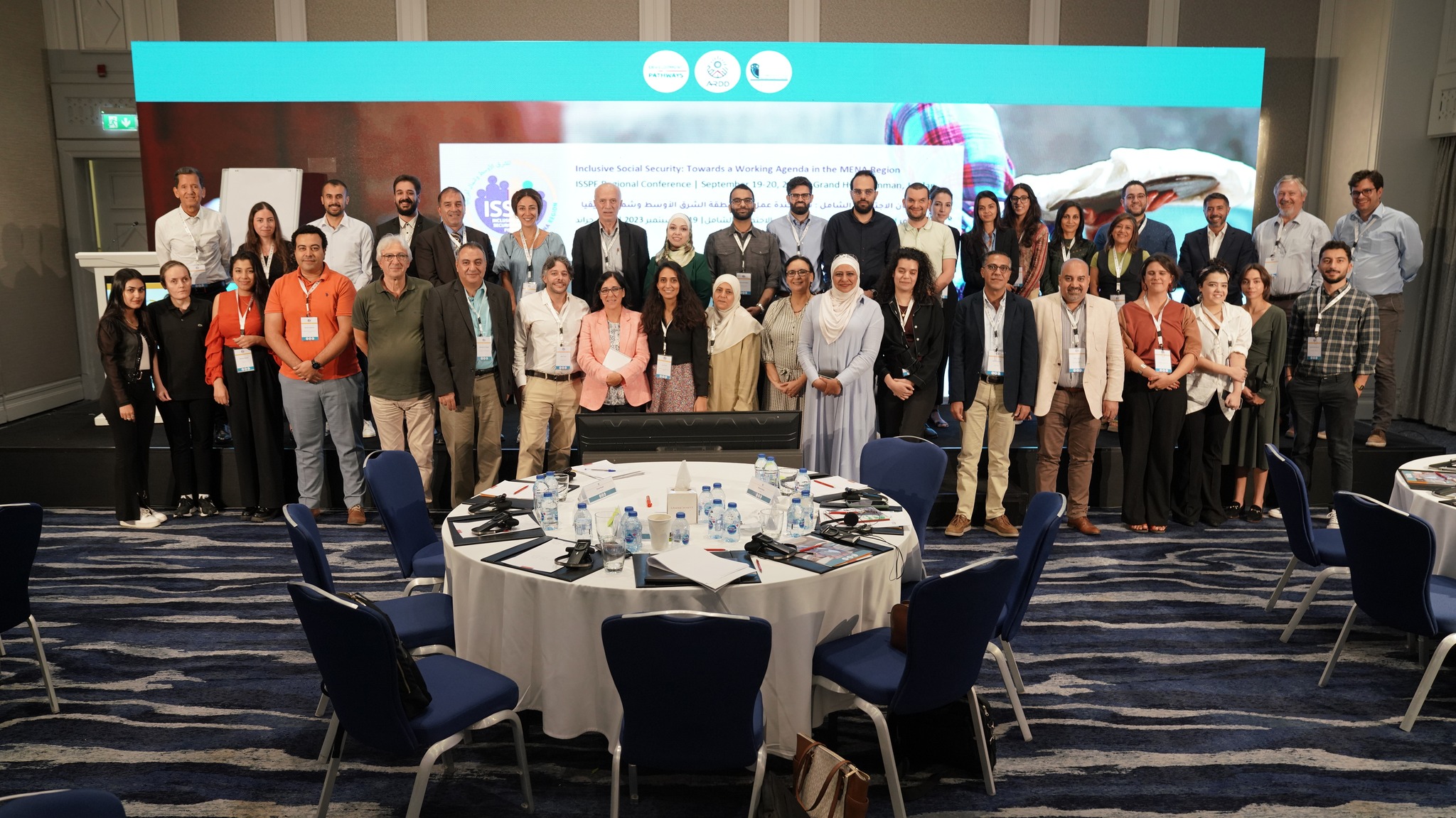Against the backdrop of recent global crises, including the coronavirus pandemic, the Russian-Ukrainian conflict, and other geopolitical shifts that have hit the MENA region, there is a need today for a transition towards an inclusive protection system that could enable all people to access their rights in a fair manner throughout their lives, including their right to social security, pensions, as well as maternity, work injuries, disability, and unemployment benefits, education, and health.
This affirmation was advocated by experts, specialists, and researchers in the field of protection security systems during the Regional Conference on Universal Social Security: “Towards an Agenda for Action in the Middle East and North Africa”. The conference is a dynamic platform held by the Inclusive Social Security Policy Forum (ISSPF) in Amman between the 19th and the 20th of September 2023, in partnership with the Development Pathways Foundation, and in cooperation with the Arab Renaissance for Democracy and Development (ARDD), the Center for Social Sciences Research and Action (CeSSRA) in Lebanon, and the Tunisian Observatory of Economy (TOE) in Tunisia. The conference was funded by the Ford Foundation.
Over the course of two days, the regional conference discussed the role of international financial institutions, poverty, comprehensive social protection schemes, access to data, promoting how the narrative about social security provision in the region is changing, and moving away from immediate relief models for the poor while moving towards modern and inclusive models.
Dr. Stephen Kidd, a specialist in social protection at the Development Pathways Foundation, stressed that complex economic, food and climate crises should push governments to establish social systems that protect human rights, rather than downsizing the current programs, noting that social security is a basic and non-negotiable individual right, and a commitment by the state to its society.
In turn, Dr. Maria Logrono, Chief Advisor for Access to Justice and Comprehensive Social Protection at Al-Nahda Intellectual Center, called for the need to activate social protection systems that can respond to people’s needs during crises and traumatic events, noting that Jordan has been working since 2011 within the framework of humanitarian relief to respond to the impact of the Syrian refugee crisis, but this response has not had any impact on strengthening social protection systems in the country.
According to Dr. Logrono, when we talk about inclusive social protection, we must include persons with disabilities, children, women, men, and the elderly, stressing the importance of investing in comprehensive social security systems in the Arab world, and the role of civil society institutions in promoting the principles of transparency and accountability.
Leah Yammine, a researcher at the Center for Social Sciences Research and Action, explained that in Lebanon there is a system that relies on donor-led social assistance to help the poor, indicating that providing health insurance and social security services fairly to all will encourage citizens to commit to paying their taxes.
Moreover, she pointed out that the Sultanate of Oman will be the first country in the Arab world to adopt leadership of change and development with regard to the concepts of social protection, as the institutions there have moved from supporting the poor to providing effective programs that ensure a life-long decent life for citizens.
Amani Ben Seck Ali, a policy analyst at the Tunisian Observatory of Economy, noted that there has been a decline in women’s awareness in the Arab region and North Africa regarding access to their health, education and leadership rights, which requires designing deliberate awareness campaigns to raise awareness among them of the need to include them in various social protection programs.
In this context, participants in the conference discussions concluded the need to design social protection programs that would contribute to reducing poverty, and that would include all individuals, while reviewing the system of taxes paid by citizens in the Middle East and North Africa. They also called for providing sustainable assistance to members of the middle class, as well as activating social protection programs to reach the real beneficiaries, in light of the significant increase in economic crises and inflation.
The participants also called for a paradigm shift in designing national social security systems, as well as considering the sustainability of social security programs, so that individuals could break away from the system of receiving assistance to become productive members of society, in addition to ensuring food security and healthcare for all citizens, encouraging local industries, raising contributions to social and pension funds, and facilitating the integration of workers in sectors that are not licensed by social security, all the way to providing financial support to decision-makers in order to facilitate the inclusion of all groups in education, rehabilitation, health, and parenting services.
The Inclusive Social Security Policy Forum (ISSPF) provides a network and a space for civil society organizations as well as development professionals and researchers across the Middle East and North Africa, who are committed to promoting inclusive social security policies to focus on research, advocacy, and collaboration in this field.


